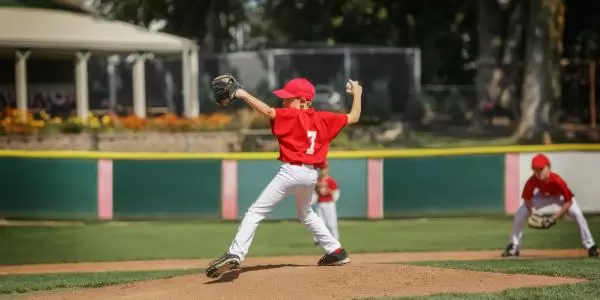Being Playful in Youth Sports
Being playful in sports–finding ways to laugh and joke around during practice–isn’t just for fun.
It actually helps kids improve faster in sports.
That’s the word from Gary Avischious, founder and head coach of coachingschool.org. Avischious learned about the science of play at the National Institute for Play and put some of the theories to work in his sports practices.
What he wanted to counter, among other things, was the all-work-no-play ethic often seen in youth sports.
“It can be all about ‘Get in two lines we’ve got a lot to do today,’ and parents watching with eagle eyes and screaming at their kids,” he says.
“I started this concept of bringing play sciences into youth sports and saw how that changed kids’ performance,” says the soccer, roller hockey and basketball coach.
How did he integrate the “science of play” into practice?
He did it in a structured way, he says.
For example, he instructed his 6-year-old roller hockey players to skate around the town’s trail system.
“I would say, ‘Between this light pole and the next one, let’s hold our sticks above our heads like the Statue of Liberty.”
Then he’d ask the kids what silly things they’d like to do. They wanted to skate with their fingers in their noses. Or make monkey noises.
“One thing leads to another, and the rules change as you go,” he says.
Every once in a while he’d ask them to skate backwards on the sidewalk.
He knew they were having fun because they lost all track of time—which is one of the key ingredients to achieving the all-desirable state of “flow,” Avischious says.
“Researchers call it flow, athletes call it getting in the zone and kids call it play. You lose track of time and space.”
His goal, he says, is for the kids to say, “It hasn’t been an hour yet. We want to keep playing,” instead of “I can’t wait until this is over.”
One mom called him after a playful practice and said that her son had laughed so hard his stomach ached.
Of course, running practices this way required a lot more creativity, effort and energy on his part, he notes. But it all paid off. “Performance went through the roof.”
Related Articles on Kids’ Mental Game:
- Helping Young Athletes ‘Wing it’ During Games
- The Importance of Playfulness and Trust in Youth Sports
- Helping Athletes Improve Trust in Skills
*Subscribe to The Sports Psychology Podcast on iTunes
*Subscribe to The Sports Psychology Podcast on Spotify
The Composed Sports Kid

“The Composed Sports Kid” audio and workbook digital download program for young athletes and their parents or coach helps kids cope with frustration and anger in sports. Help your sports kids learn how to manage expectations and let go of mistakes so they can keep their head in the game.
The Composed Sports Kid system is really two programs in one–one program to train parents and coaches how to help their kids practice composure, and one program that teaches young athletes–ages 6 to 13–how to improve composure, let go of mistakes quickly, have more self-acceptance, and thus enjoy sports more!

